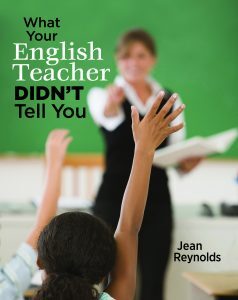Quotation Marks Part II
Instant Quiz
Can you improve the sentence below? Scroll to the bottom of today’s post for the answer.
Here’s an interesting factoid about the late Queen of England: she was trained as a mechanic in World War II.
_______________________________________________________________________________
Last week I talked about a common problem with quotation marks – the bad habit of using them to apologize for a word choice.
Today I have another lesson about quotation marks. I’m going to give you a simple rule about using quotation marks correctly.
Here it is: In the US, periods and commas always go inside. (Did you notice the word always?)
Here are a few examples:
When Janie came through the door, we all started singing “Happy Birthday.” CORRECT
Although Mark liked the movie, he said he would have “drastically cut it.” CORRECT
“The time has come,” the Walrus said, “To talk of many things.” CORRECT
During my long teaching career, I discovered that many people routinely ignore the word always. After I explained that commas and periods always go inside quotation marks in the US, I would ask my class for the exceptions.
Hands would immediately go up, and I’d get answers like “Put the period outside if it’s an incomplete sentence.” “Periods go inside, and commas go outside.”
And I would say, “Does anyone know what always means?” The hands would go down, and there would be some sheepish looks.
Other countries have different rules. In 2015 I published an article about Shaw in a book published in England. I followed British rules for quotation marks and put some of the punctuation outside. But in the US, there are NO exceptions.

__________________________________________________________________________________
Instant Quiz ANSWER
Ordinary words are always better than fancy ones. Fact is a better choice than factoid for today’s quiz sentence.
Here’s an interesting fact about the late Queen of England: she was trained as a mechanic in World War II. CORRECT
Here’s a bonus: you don’t have to capitalize the word after a colon (unless the organization you’re writing for wants you to). She and she are equally correct. (When someone hires you for a writing task, always ask about house style.)
What Your English Teacher Didn’t Tell You is available in paperback and Kindle formats from Amazon.com and other online booksellers.
“A useful resource for both students and professionals” – Jena L. Hawk, Ph.D., Mississippi Gulf Coast Community College
“Personable and readable…Jean knows her subject forwards and backwards.” – Adair Lara, author of Hold Me Close, Let Me Go
Jean Reynolds's Blog
- Jean Reynolds's profile
- 2 followers






